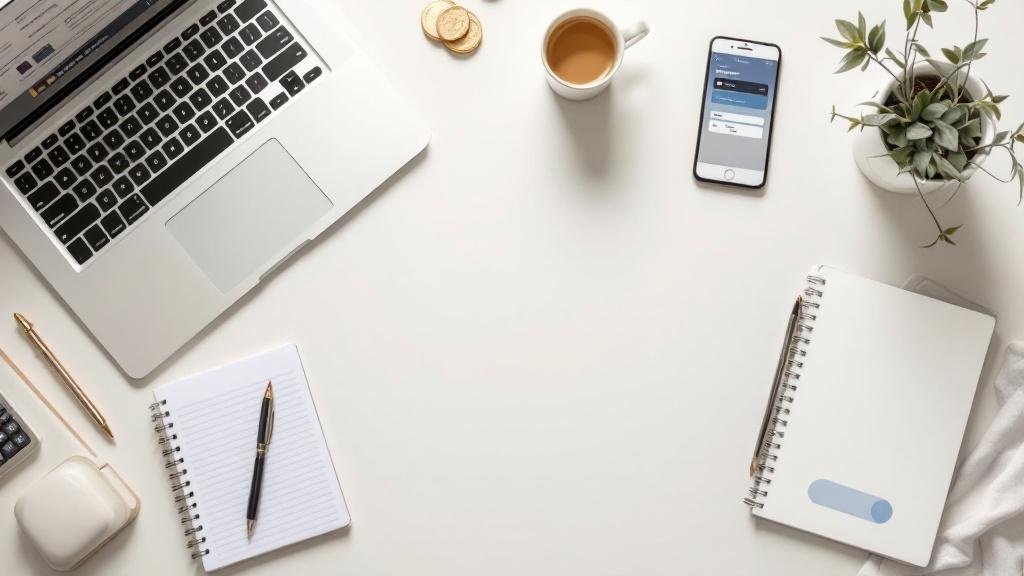When you’re single, managing finances can feel overwhelming. You’re solely responsible for your expenses, savings, and future financial goals. Whether you’re a young professional just starting out or someone looking to optimize your current budget, mastering your finances as a single person is essential for achieving financial freedom.
In this comprehensive guide, we’ll walk through budgeting tips for singles, provide practical strategies for managing money on a single income, and show you how to make the most of your financial resources. From creating a monthly budget to using budgeting apps, we’ll share essential tools to help you stay on track and save for your future.
Why Is Budgeting Important for Singles?
When you are living alone, every penny counts. You’re not splitting rent, utilities, or daily living expenses with a roommate or spouse. So, you need to be extra cautious about your spending habits and financial goals.
For single adults, financial planning often feels like an uphill battle. However, budgeting can empower you to take control of your finances. It helps ensure that you live within your means, save for emergencies, and plan for retirement — even if you’re only earning one income.
Budgeting also allows you to make better choices with your money. Instead of feeling stressed about unexpected expenses or wondering if you have enough to cover your bills, budgeting for single people provides clarity and security.
The Basics of Budgeting for Single Adults
Before we dive into specific tips, let’s start with the basics. Creating a budget is about understanding your income, tracking your expenses, and allocating money for different categories.
1. Know Your Income and Expenses
The first step in any budget is to determine how much money you’re making each month. This is easy if you have a salary, but if your income is variable, like in freelance work or commission-based jobs, it can be a bit trickier. In that case, track your average monthly income over the past few months.
Next, list all your monthly expenses. Don’t forget to include the not-so-obvious ones, like:
-
Rent or mortgage payments
-
Utilities (electricity, water, internet, etc.)
-
Insurance premiums (health, car, home)
-
Groceries
-
Transportation costs (gas, public transportation, etc.)
-
Entertainment (streaming services, dining out, etc.)
-
Savings contributions
-
Debt payments (credit cards, student loans, etc.)
Once you have a clear understanding of your income and expenses, you can begin making more intentional financial decisions.
2. Use the 50/30/20 Rule
The 50/30/20 rule is a simple way to manage your money. It divides your monthly income into three main categories:
-
50% for Needs: These are your essential expenses, such as rent, utilities, groceries, insurance, and transportation.
-
30% for Wants: This category covers non-essential expenses, such as entertainment, dining out, and vacations.
-
20% for Savings and Debt Repayment: Aim to put at least 20% of your income toward building your emergency fund, saving for retirement, or paying down debt.
The 50/30/20 rule is a good starting point, but it’s not set in stone. Feel free to adjust these percentages based on your personal situation. For instance, if you don’t have high rent costs, you might be able to allocate more money toward savings or paying off debt.
Single Income Budgeting Tips
Budgeting as a single person on a single income comes with its own set of challenges. However, with the right strategies, you can thrive financially.
3. Embrace the Power of Saving
Saving money can be tough, especially if you’re managing a one-income household. But it’s crucial for long-term financial security. Start small by setting aside a fixed percentage of your income each month — even if it’s just 5% to 10%. Automate your savings if possible, so you don’t have to think about it.
Emergency Fund for Singles
One of the best ways to ensure financial security is to build an emergency fund. Life can throw unexpected expenses your way (car repair, medical bills, job loss), and having a safety net will keep you from sinking into debt when life gets unpredictable.
Aim to save at least three to six months’ worth of living expenses. If you’re just getting started, you can set smaller goals, such as saving $1,000, and build from there.
4. Track Your Spending
Tracking your expenses is one of the best ways to see where your money is going. By regularly reviewing your purchases, you can identify areas where you can cut back.
You don’t need to track every penny manually — budgeting apps for singles can simplify this process. Apps like Mint, You Need a Budget (YNAB), or PocketGuard automatically track your spending, categorize your expenses, and alert you when you’re approaching your budget limits.
5. Cut Back on Unnecessary Expenses
If you’re living on a single income, it’s essential to cut back on unnecessary expenses. Look for ways to save on the following:
-
Dining out: Cook at home more often. Meal prepping can save both time and money.
-
Streaming services: Are you really watching all those subscriptions? Consider trimming down to just one or two.
-
Shopping: Only buy what you truly need, and take advantage of sales or discounts.
Consider adopting a minimalist approach to spending. Focus on affordable living for singles by prioritizing needs over wants and keeping your lifestyle in check.
Personal Finance Tips for Single People
Managing money as a single person often requires balancing short-term expenses with long-term goals. Here are more actionable tips to help you succeed:
6. Set Realistic Financial Goals
Creating a budget is only part of the equation — you also need clear financial goals. These could include:
-
Saving for a vacation
-
Paying off credit card debt
-
Building an emergency fund
-
Investing for retirement
Break these goals down into manageable steps. For example, if you want to save $5,000 in a year, you need to set aside around $417 each month. Having specific goals gives you motivation to stick to your budget.
7. Plan for Retirement Early
It’s never too early to start saving for retirement, even if you’re single. Consider opening a retirement account like a 401(k) or IRA (Individual Retirement Account). Contribute to it regularly, and take advantage of any employer matches if applicable.
While retirement might seem far off, the earlier you start saving, the more time your money has to grow. Financial freedom for singles often starts with early planning and smart investment decisions.
Single Person Financial Habits to Cultivate
When managing money as a single person, certain habits can set you up for long-term financial success.
8. Avoid High-Interest Debt
High-interest debt, like credit card debt, can quickly spiral out of control. Prioritize paying off any high-interest loans first. The quicker you eliminate them, the less money you’ll waste on interest payments.
Consider using the debt snowball or debt avalanche method to pay off debts efficiently. The snowball method focuses on paying off smaller debts first, while the avalanche method prioritizes high-interest debts.
9. Use Budgeting Apps for Singles
The right tool can make all the difference in staying organized and on top of your finances. Consider using a budgeting app tailored to your needs. Apps like Mint help you track expenses automatically, while YNAB (You Need a Budget) is great for those who want to take a hands-on approach.
Many apps also allow you to sync multiple bank accounts and credit cards, helping you keep everything in one place.
10. Build Strong Financial Habits
Strong financial habits like regular saving, mindful spending, and keeping track of your budget will pay off in the long run. Small habits like reviewing your bank statements, sticking to your spending limits, and regularly contributing to your savings account can lead to financial freedom.
FAQs About Budgeting for Singles
1. How Can I Create a Monthly Budget for Single Individuals?
To create a monthly budget, list your monthly income and categorize your expenses (needs, wants, savings). The 50/30/20 rule is a great starting point. Track your spending to ensure you stay within your limits.
2. What Are Some Single Person Budgeting Strategies?
Some effective strategies include the 50/30/20 rule, setting up automatic savings, cutting back on non-essential expenses, and using budgeting apps like Mint or YNAB.
3. How Can I Save Money as a Single Person?
Start by tracking your expenses and cutting back on things like dining out or impulse purchases. Automate your savings and aim to save a small percentage of your income each month.
4. What Are the Best Financial Habits for Singles?
Some good financial habits include saving regularly, tracking your spending, paying off high-interest debt, and investing for the future. Building these habits will help you achieve financial security.
5. How Can I Plan for Retirement as a Single Person?
Start by opening a retirement account (401(k), IRA), contributing regularly, and considering investments. The earlier you start, the more time your money has to grow.
6. How Do I Build an Emergency Fund as a Single Person?
Start by saving a small amount each month, even if it’s just $50. Aim for three to six months of living expenses as your goal. Consider setting up a separate savings account for emergencies only.








Comments (0)